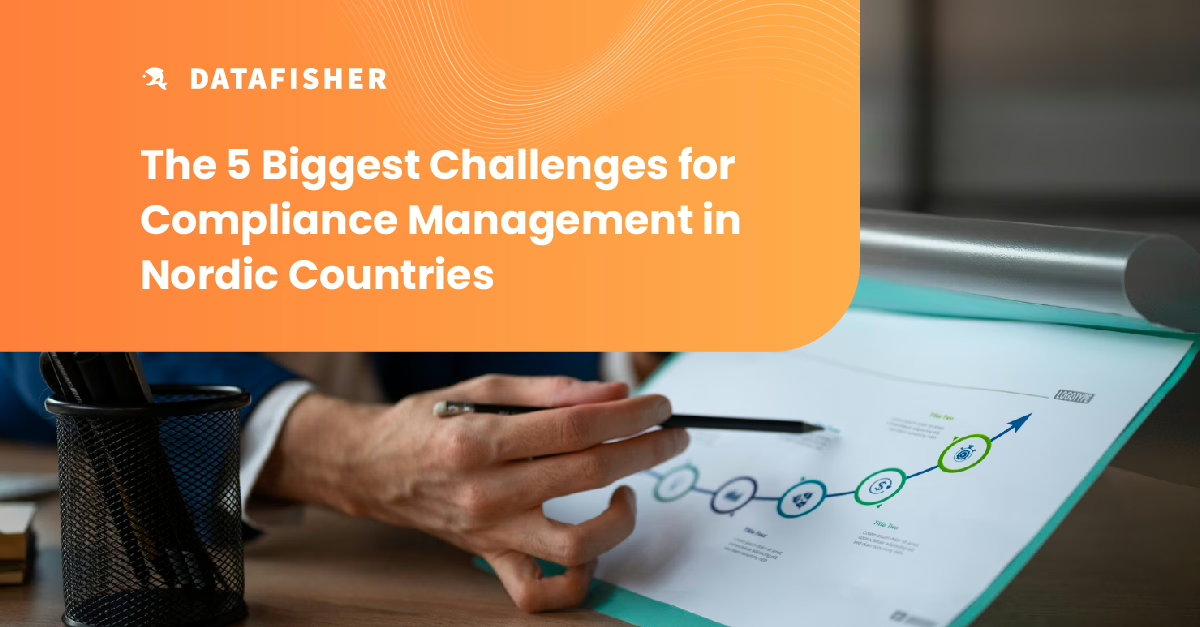Are you a Chief Legal Officer (CLO) or COO in the EU facing challenges with compliance management in your company?
Is it painful to keep up with changing regulations, ensure consistency across borders, and manage data privacy and security for both employees and customers?
You’re not alone.
Legal teams across the world face critical compliance issues in this realm every day. Solving through these challenges requires not only expertise but also strategic thinking, innovation, and the right training at your disposal.
If you are looking for help understanding your compliance management, then you’ve come to the right place.
Here are the five biggest challenges (and potential solutions) you may be facing as a CLO tasked with compliance management in your employees and leadership team.
1. Keeping Up with Regulatory Changes
One of the primary challenges for CLOs is staying aware of the ever-evolving regulatory landscape in the EU. With new laws and regulations being introduced regularly, it can be challenging to ensure that your organization remains compliant.
How do you stay updated with these changes to ensure compliance? You should regularly monitor regulatory updates and participate in industry events to stay informed, implement a compliance management system that can adapt to regulatory changes quickly, and work with legal counsel and compliance experts to interpret and apply new regulations effectively. 2. Managing Data Privacy and Security
Data privacy and security have become increasingly important in recent years, with high-profile data breaches making headlines around the world (like the Yahoo breach in 2013). It’s critical to stay on top of your data and security management.
How do you implement robust data protection measures and ensure compliance with regulations such as GDPR? You should conduct regular risk assessments and audits to identify and mitigate data security risks, stay updated with data protection regulations and implement necessary changes to comply with them.
CLOs must ensure that their organizations comply with strict data protection laws and implement robust security measures to protect sensitive information. You can also consider using a learning management system to train employees to protect their own data.
2. Ensuring Compliance Across Borders
If you operate in the EU, there’s a good chance you operate in multiple countries, each with its own set of laws and regulations. This can make compliance management a complex task for CLOs that manage global teams in terms of language and different compliance laws.
A company based in Finland that also operates in Norway and Sweden must ensure that it complies with the different employment laws in each country. Furthermore, if they need to provide ongoing training to employees on topics such as equality, company culture, or procedures, then they would need to consider engaging in training in multiple languages. To ensure compliance across borders, the CLO would need to implement regular audits of local laws across all jurisdictions.
3. Dealing with the Complexity of Legal Requirements
The legal requirements for compliance can be difficult to understand, particularly for non-legal professionals. CLOs must be able to clearly communicate and define these requirements to other members of the organization and ensure that they are followed correctly.
For example, you must ensure that employees are aware of their rights and responsibilities under the GDPR. How do you do this? By implementing monitoring tools and regular training opportunities to employees for the latest laws and regulations (and giving them the right incentives to do so), you can foster a culture of compliance.
4. Balancing Compliance with Business Goals
You never want to run into issues with the law in any of your jurisdictions, but how do you stay compliant while growing your bottom line at the same time?
While compliance management isn’t always the most fun task for a CLO, you must strike a balance between ensuring compliance and meeting the strategic business goals of the organization. This can sometimes be challenging, as compliance requirements may conflict with business objectives. A company may want to expand into a new market, but this may require them to comply with additional regulations. For example, in 2019, Airbus agreed to pay €3.6 billion in fines to settle bribery and corruption charges with authorities in France, the UK, and the US. This certainly didn’t help their bottom line.
5. Ensuring Employee Compliance
Employee compliance is a critical aspect of overall compliance management. How do you ensure that employees are aware of and adhere to compliance policies and procedures?
You must provide comprehensive training to employees on compliance policies and procedures. You can also implement monitoring tools to track employee compliance and address any issues promptly.
In conclusion, it’s safe to say that compliance management poses several significant challenges for Chief Legal Officers in the EU. By staying informed about regulatory changes, prioritizing data privacy and security, ensuring compliance across borders, simplifying legal requirements, and balancing compliance with business goals, CLOs can navigate these challenges successfully.
To learn how Datafisher can help your organization streamline compliance management through compliance training, book a time with with our team to speak.
